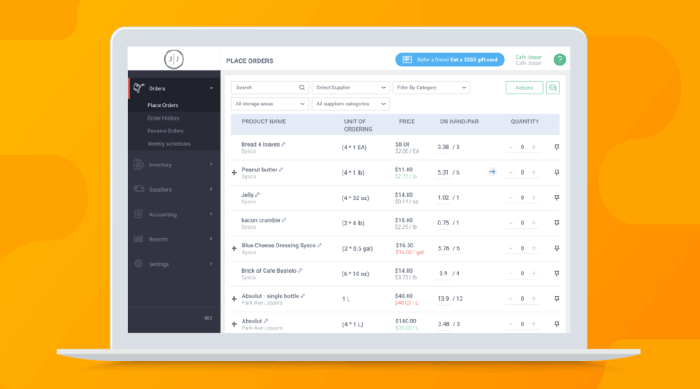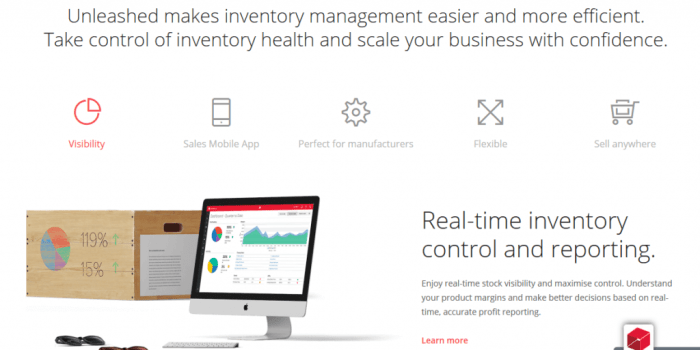Running a small business often involves juggling numerous tasks, and maintaining accurate inventory records can be a significant challenge. Effective inventory management is crucial for profitability, customer satisfaction, and overall business success. Small business inventory software offers a streamlined solution to these challenges, automating many of the tedious tasks associated with tracking stock levels, ordering supplies, and managing sales.
This guide dives deep into the world of small business inventory software, exploring its benefits, features, and how to choose the right system for your needs.
Understanding the Importance of Inventory Management
Accurate inventory tracking is the cornerstone of a successful small business. Poor inventory management can lead to significant issues, including:

Source: cdn-website.com
- Stockouts: Running out of popular items, losing sales, and frustrating customers.
- Overstocking: Holding excess inventory, tying up capital, and potentially leading to losses due to spoilage or obsolescence.
- Inaccurate records: Difficulty in identifying slow-moving or high-demand products, hindering informed decisions.
- Increased operational costs: Manual processes are prone to errors, leading to higher labor costs and potential losses.
Inventory software streamlines these processes, offering a centralized platform for managing all aspects of inventory, from procurement to sales.
Key Features of Small Business Inventory Software
Effective inventory software solutions offer a range of features designed to enhance efficiency and accuracy. These often include:
Product Management
- Detailed product information: Storing comprehensive data about each product, including descriptions, specifications, and images.
- Multiple variations: Managing different sizes, colors, or styles of the same product.
- Automated barcode scanning: Speeding up data entry and reducing errors.
Sales Order Management
- Order processing: Tracking sales orders, updating inventory levels, and generating invoices.
- Sales forecasting: Analyzing past sales data to predict future demand.
Purchase Order Management, Small business inventory software
- Supplier management: Maintaining contact information, order history, and pricing.
- Automated reordering: Setting up automatic purchase orders when stock levels reach a predefined threshold.
Inventory Tracking
- Real-time inventory visibility: Knowing exactly how much stock is on hand at any given time.
- Low stock alerts: Receiving notifications when inventory levels are critically low.
Reporting and Analytics
- Sales reports: Analyzing sales trends, identifying top-selling products, and understanding customer preferences.
- Inventory reports: Gaining insights into stock levels, turnover rates, and potential issues.
Choosing the Right Inventory Software for Your Business
Several factors should be considered when selecting inventory software for your small business. These include:

Source: eztexting.com
- Business size and needs: Small businesses require different features than larger enterprises.
- Budget: Inventory software comes in various price ranges.
- Ease of use: A user-friendly interface is essential for efficient adoption.
- Scalability: Consider how the software can adapt as your business grows.
Benefits of Using Inventory Software: Small Business Inventory Software
Implementing inventory software brings a multitude of advantages:
- Improved accuracy: Reduced errors in inventory management.
- Increased efficiency: Streamlined processes and automated tasks.
- Reduced costs: Minimized stockouts and overstocking.
- Enhanced profitability: Better control over inventory and sales.
- Data-driven decisions: Access to insightful reports and analytics.
Frequently Asked Questions (FAQ)
- Q: How much does inventory software cost?
- A: Costs vary greatly depending on the features, vendor, and chosen subscription model.
- Q: Is inventory software easy to use?
- A: Many reputable providers offer user-friendly interfaces, though some may require training.
- Q: What are the different types of inventory software?
- A: Cloud-based, on-premise, and open-source options are available.
Conclusion
Small business inventory software is a powerful tool that can revolutionize your operations. By automating tasks, improving accuracy, and providing valuable insights, these systems help businesses thrive in a competitive market. Invest in the right software to unlock greater efficiency, profitability, and growth.
Call to Action
Ready to take control of your inventory? Explore our curated list of top inventory management software for small businesses at [link to relevant resource].
Source: [Insert links to reputable inventory software review sites, e.g., Capterra, G2, etc.]
Commonly Asked Questions
How much does small business inventory software typically cost?
Pricing varies greatly depending on the features, the number of users, and the chosen software provider. Some offer free trials or tiered subscription models, allowing businesses to select a plan that best suits their needs and budget.
What are the benefits of using inventory software?
Beyond improved stock management, inventory software offers benefits like real-time data insights, accurate sales forecasting, and reduced administrative overhead. It ultimately leads to increased efficiency and profitability.

Source: smallbiztrends.com
Can inventory software integrate with other business systems?
Many modern inventory software solutions are designed to integrate seamlessly with accounting software, point-of-sale systems, and other essential business applications, creating a unified platform for data management.
How do I choose the right inventory software for my business?
Consider factors like the size of your business, the complexity of your inventory, and the specific needs of your operations. Thorough research and potentially seeking advice from industry experts will be beneficial in your decision-making process.